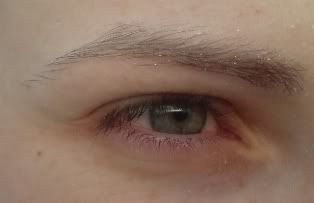Over-the-counter topicals
These are lotions, creams, and serums containing antioxidants (vitamins C and E, coenzyme Q10, alpha lipoic acid, and retinol, a form of vitamin A), peptides (copper and growth factors), and alpha and beta hydroxy acids (glycolic, lactic, and salicylic).
How they work: Antioxidants operate preventively by destroying rogue molecules that break down collagen and make skin more susceptible to wrinkles. Peptides and retinol have been shown to stimulate collagen production. Hydroxy acids exfoliate the top layer of skin, smoothing texture. But don't expect miracles, says Patricia K. Farris, MD, clinical assistant professor of dermatology at Tulane University. She's seen modest improvement with some peptide formulas (specifically the Neutrogena Visibly Firm copper line and the Olay Regenerist line) and retinol creams (like Roc Retinol Correxion). Antioxidants are difficult to stabilize and deliver; Farris suggests asking your dermatologist which products work best.
On the horizon: Topical genistein, a plant hormone found mainly in soybeans, has been shown to protect the skin from the photodamage that causes wrinkles and skin cancer. Products containing this potent antioxidant are expected to be on the market within the next six months, says Neil Sadick, MD, clinical associate professor of dermatology at the Weill Medical College of Cornell University.
Doctor-dispensed and prescription topicals
 Products (like M.D. Forté, Afirm, and TNS Recovery Complex) typically contain hydroxy acids, retinol, or growth factors in concentrations higher than what you can buy at a store but not quite prescription strength. Prescription creams like Renova, Retin-A, and Avita (generic Retin-A) contain tretinoin, a vitamin A derivative. (Renova is less drying than Retin-A.) Avage and Tazorac contain tazarotene, similar to tretinoin but stronger.
Products (like M.D. Forté, Afirm, and TNS Recovery Complex) typically contain hydroxy acids, retinol, or growth factors in concentrations higher than what you can buy at a store but not quite prescription strength. Prescription creams like Renova, Retin-A, and Avita (generic Retin-A) contain tretinoin, a vitamin A derivative. (Renova is less drying than Retin-A.) Avage and Tazorac contain tazarotene, similar to tretinoin but stronger.How they work: The retinoids reach the skin's middle layer (dermis), where they increase cell turnover and stimulate collagen production, which thickens the skin and helps smooth wrinkles. They also cause exfoliation, which improves texture. Stinging, peeling, flaking, and redness are common, but your skin will eventually adapt to the side effects. Doctor-dispensed topicals work similarly to OTC products but can deliver better and faster results.
On the horizon: The antioxidant idebenone, a derivative of Q10, will be a key ingredient in a doctor-dispensed product called Prevage. Lab tests show that it's more potent than some of the more popular antioxidants, says Patricia K. Farris, MD. The research is promising, but the clinical data still needs to be analyzed; Prevage should be available by the end of this year.
No comments:
Post a Comment